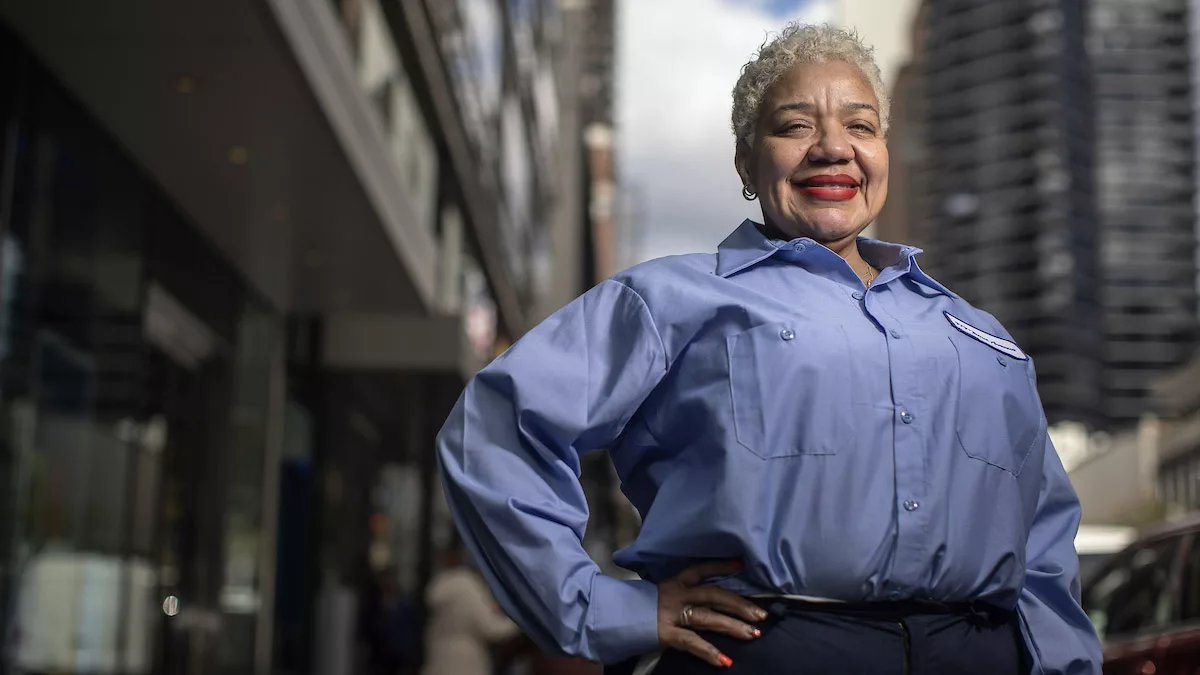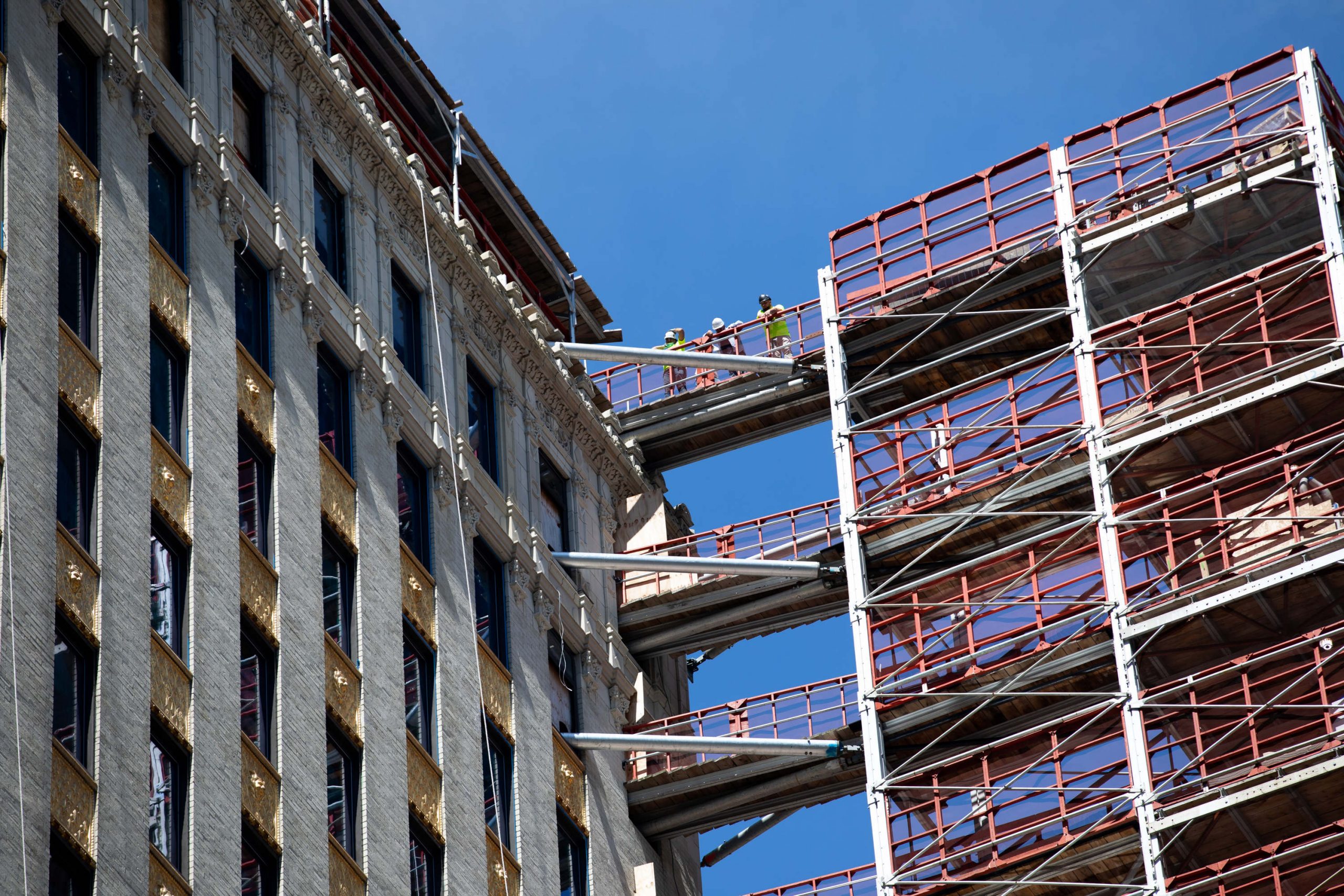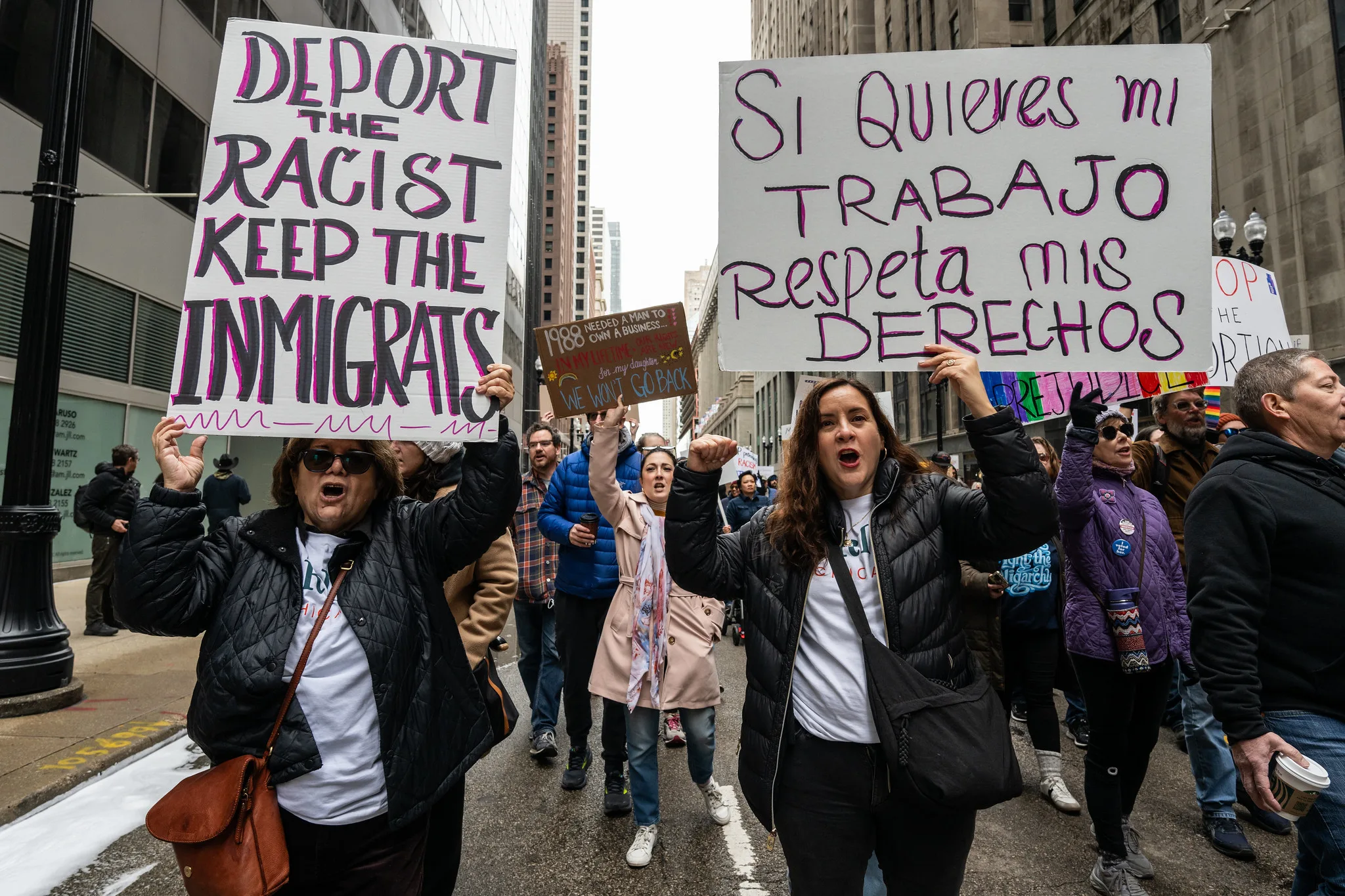New York City’s office buildings employ nearly as many cleaning workers as it took to build the Hoover Dam. Like clockwork, the 20,000 office cleaners work day and night to ensure New York’s 1,300 buildings have their trash disposed of and their bathrooms clean.
Now many of those cleaners, members of the labor union Local 32BJ, have vowed to walk off the job on New Year’s Eve if a new and fair contract isn’t reached with some of the largest real estate companies in the city. Their current collective bargaining agreement is set to expire on December 31.
On Nov. 9, 32BJ began bargaining with the Realty Advisory Board on Labor Relations (RAB), an association representing New York City’s major commercial office building owners, managers, and cleaning companies. RAB represents some of the largest property owners in the city such as Vornado Realty Trust, Rubenstein Partner, and Tishman Speyer.
Also Read: NYS Department of Labor Fails to Recover $79 Million in Stolen Wages
The current negotiations are the continuation of a decades-long tug-of-war between the interests of workers and the commercial real estate industry. Cleaning workers last walked off the job during the winter of 1996 when nearly 35,000 workers led a month-long strike after management demanded that new employees start at a lower salary than current building workers.
Under the current contract, commercial cleaners receive a living wage of $29 an hour, employer-paid family health insurance, paid vacation, paid sick leave, a retirement pension, and access to free legal, education, and training services. These hard-fought victories by the union have made New York unionized commercial cleaners some of the highest-paid office cleaners in the country. Now the workers are fighting not only for salary increases that account for the rise in the cost of living, but also to maintain the benefits they currently enjoy.
In the wake of the pandemic and the rise of remote work, office vacancy rates have nearly doubled from 12.4% to 22.7% and are expected to hover above 20% until at least 2026. Given the current environment, the union anticipates that the RAB will try to force workers to accept significant concessions for the sake of the industry. RAB has not exactly shied away from its desire to seek out a more flexible contract given that Manhattan’s commercial real estate industry has also declined by 26.6% since 2019.
“Without changes to increase flexibility in our [Collective Bargaining Agreement], the future of the industry and our workers is in jeopardy,” said Howard Rothschild, president of RAB in a statement to Documented. “Now is the time for the union and industry to roll up our sleeves and come together to negotiate a contract that will provide for a sustainable future.”
Manny Pastreich, president of 32BJ, disagrees, pointing out that workers have already sacrificed so much during the pandemic when 7,000 of their members were laid off. The union currently has 2,000 fewer members than in 2019 and estimates that at least 50 cleaners died from complications due to COVID-19. Pastreich also argues that inflation has taken a big toll on workers’ wages and decreased their buying power.
“Our members have made big concessions,” Pastreich said. “They made concessions through the layoffs. They made concessions as essential workers. Now the point is how do they get rewarded for the concessions they have made? How do they continue to keep up with inflation to pay for the rent and for the groceries?”
When it comes to concessions, Yanny Hernandez says she has sacrificed plenty.
At 51, she lost her job cleaning an office building in Midtown Manhattan in March 2020. It was at the height of the pandemic, and the loss of her job added to the atmosphere of uncertainty. It was a job she held for 17 years through pure discipline and hard work. Hernandez arrived in the U.S. as a single mother from the Dominican Republic 27 years ago. Her job as a union cleaner allowed her to earn a living wage to support her son.
Although she lost her job, she still felt hopeful as management assured her the loss of employment was only temporary. But as the pandemic raged on, her temporary unemployment status grew more indefinite.
Also Read: Documented Launches The Wage Theft Monitor
“During this time, I was frustrated,” she said. “The company was supposed to call me in six months, then it was nine months, then extended and extended.”
To make ends meet, Hernandez was forced to rely on the generosity of food banks. But even that was not sufficient enough to live on. Yet, when she went looking for another job, they didn’t come close to paying her the $29.47 an hour she earned as a union cleaner.
“The highest salary I found was a $19 an hour job at LaGuardia cleaning airplanes,” said Hernandez about a Swissport job she ultimately decided against. “It was part-time time, not full-time time, and no benefits. It’s terrible because I’m 51, I need my health care insurance and everything.”
Before being called back to her job in May 2022, Hernandez said she nearly lost hope.
“I cried. I said ‘Oh my God, I just spent a lot of time at my job, and at this moment I can lose everything.’ I was afraid because it’s not easy to start again.”
On Staten Island, 69-year-old Honduran immigrant Perla Canales has spent the last 20 years cleaning the Staten Island Mall. For five days a week, she traverses the massive space, the size of nearly 21 football fields, cleaning every surface with her arthritis-riddled hands.
“It’s a difficult job,” she said. “My hands hurt every day because I’m cleaning, mopping, cleaning mirrors, cleaning bathrooms.”
With rumors swirling that RAB is planning on cutting wages and benefits, Canales is afraid. At her age, she can’t afford to lose her healthcare.
“I want more money and I want to keep my benefits,” she said. “I want my sick days and my personal days. What I make now is nothing, believe me. You know how much I pay for food? $175 a week not including the little things I have to bring home every day.”
Although Pastreich acknowledges that the current bargaining process will be among the most challenging that the union has faced, they are prepared to stand their ground even if that means a strike is necessary. For over a year, the union has been preparing its members for that possibility and has raised a reserve strike fund of $19 million. For Pastreich, the current labor struggle is ultimately a struggle for the right to the city.
“These are the people who keep the buildings clean, keep them safe,” he said. “Fundamentally, this is about what kind of city we want to have.”














